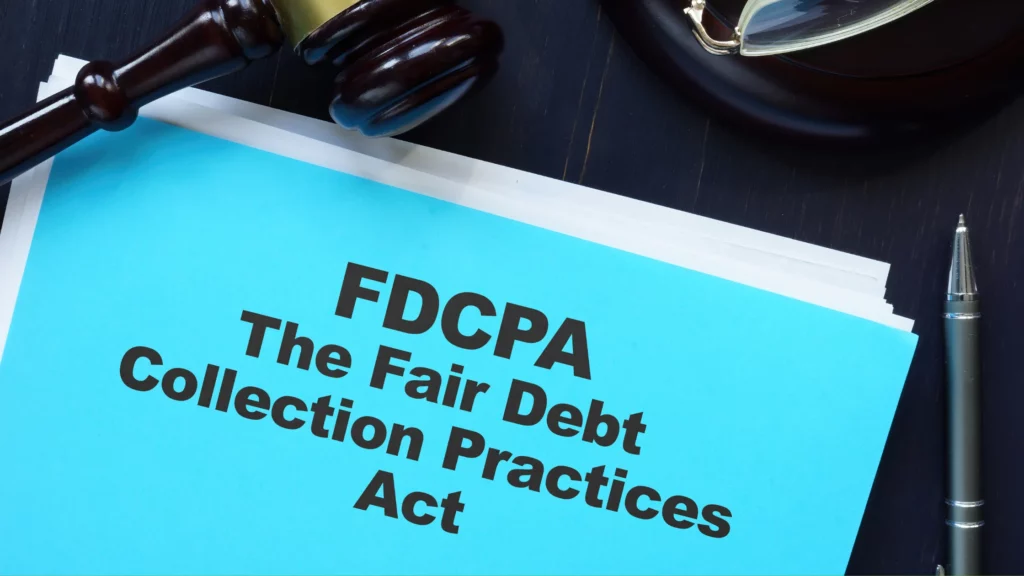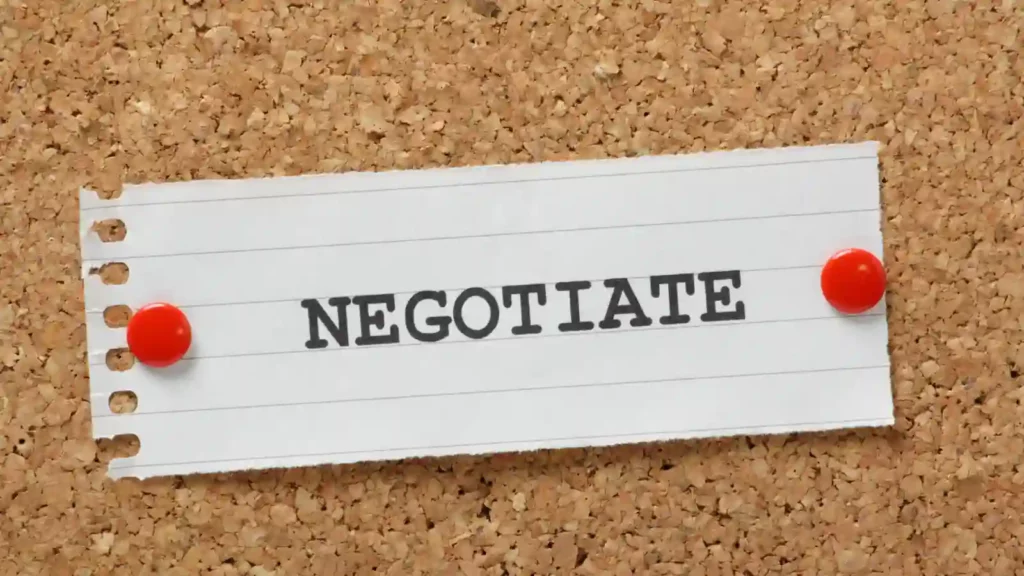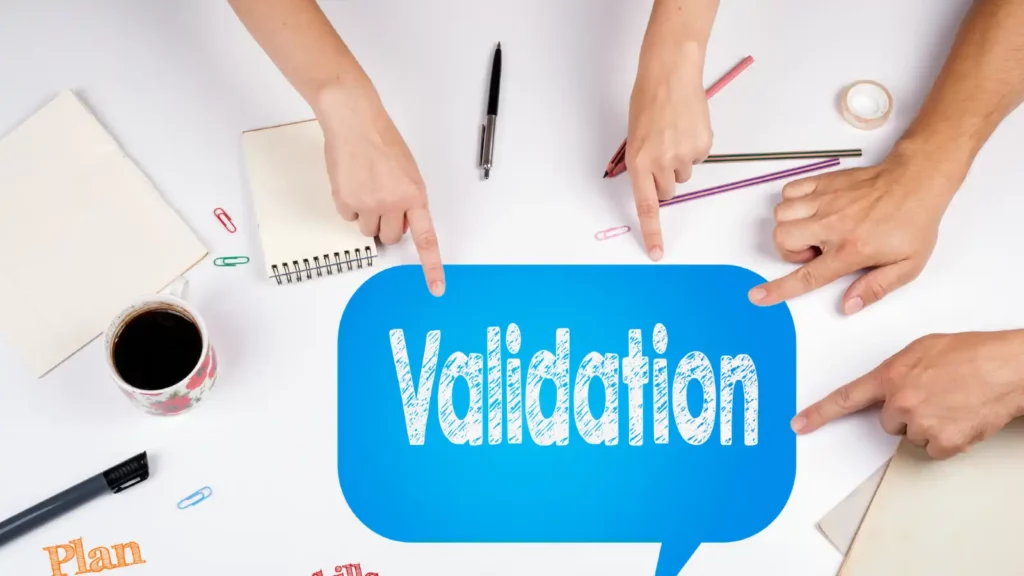To beat accredited collection services, know your rights as a bebtor, keep records of all communication, negotiate a settlement, file a complaint with the CFPB or you can go for legal help.
Are you being hounded by Accredited Collection Services and unsure of how to handle the situation?
We will explore what Accredited Collection Services are, their common tactics, and how you can beat them at their own game.
Practical tips include knowing your rights as a debtor, keeping records of all communication, negotiating a settlement, requesting debt validation, filing a complaint with the CFPB, and seeking legal help.
We discuss the consequences of not paying a debt, such as damage to your credit score, legal action from creditors, wage garnishment, property liens, and even bankruptcy.
To avoid dealing with Accredited Collection Services altogether, we offer advice on making timely payments, communicating with creditors, creating a budget, and seeking debt counseling.
Learn how to protect yourself from the tactics of Accredited Collection Services and take control of your financial situation.
Key Takeaways:
- Know your rights as a debtor and utilize them to protect yourself from aggressive tactics used by collection services.
- Keep thorough records of all communication with collection services to have evidence in case of any disputes.
- Negotiate a settlement or request debt validation to potentially decrease the amount owed or verify the validity of the debt.
What Are Accredited Collection Services?
Accredited Collection Services refer to professional agencies hired by creditors to recover overdue debts from consumers. These services operate within the guidelines set by the Fair Debt Collection Practices Act.
They play a crucial role in facilitating the resolution of unpaid debts while ensuring compliance with legal frameworks that protect consumers.
Accredited Collection Services help streamline the debt recovery process by employing trained professionals who understand both the rights of creditors and the protections afforded to debtors under relevant laws.
By adhering to regulations such as the Fair Debt Collection Practices Act, these agencies strive to maintain ethical practices and treat consumers fairly and respectfully during the debt collection process.
What Are Their Main Functions?
The main functions of Accredited Collection Services include sending validation notices, handling debt dispute letters, and verifying debts through the validation process.
When a consumer receives a validation notice from Accredited Collection Services, it serves as a formal communication regarding a debt’s existence and provides an opportunity for the recipient to request further information or dispute the debt’s accuracy.
In response to debt dispute letters, the Accredited Collection Services is responsible for investigating the disputed debts to ensure their accuracy and update the consumer accordingly.
Through the verification process, Accredited Collection Services diligently examines all relevant documentation and information to confirm the legitimacy of the debts being collected.
What Are Their Common Tactics?
Accredited Collection Services often utilize tactics such as reporting to credit bureaus, affecting credit scores, handling consumer complaints, negotiating settlements, and prioritizing financial protection.
One of the key strategies employed by these services involves credit reporting, which is vital in ensuring that consumers are aware of the impact on their credit scores.
Effective negotiation techniques play a crucial role in reaching settlements that are fair to both parties.
Addressing consumer complaints promptly and professionally is another significant aspect of their approach to maintaining positive relationships and reputation.
Ensuring the safeguarding of financial interests is paramount in this industry, where trust and transparency are essential for successful outcomes.
How to Beat Accredited Collection Services?
Beating Accredited Collection Services involves understanding your rights as a debtor, keeping records of all communications, negotiating settlements, requesting debt validations, filing complaints with the Consumer Financial Protection Bureau, and seeking legal assistance if needed.

It is crucial to familiarize yourself with the Fair Debt Collection Practices Act (FDCPA) to ensure that the collection agency is following legal guidelines during the debt collection process.
Maintaining detailed documentation of all interactions with the collection agency can serve as invaluable evidence in case of disputes or legal actions.
Honing your negotiation skills can lead to favorable debt settlement agreements, potentially avoiding prolonged legal battles.
Knowing how to request debt validation is another powerful tool in your arsenal, which can prompt collection agencies to provide proof of the debt’s validity.
Know Your Rights as a Debtor
Understanding your rights as a debtor is crucial when dealing with Accredited Collection Services, as it helps protect consumers from unfair debt collection practices and ensures compliance with statutes of limitations.
Debtor rights serve as a shield for individuals facing debt collection, safeguarding them from harassment, threats, or deceptive tactics often employed by some debt collectors.
By knowing these rights, individuals can assert themselves against overbearing practices and demand fair treatment during the debt collection process.
Being aware of statutory limitations on debt collection activities is vital as it prevents collectors from pursuing debts that are past the legal timeframe.
Keep Records of All Communication
Maintaining thorough records of all communications with Accredited Collection Services is essential to track interactions, address credit bureau reporting issues, lodge complaints, and monitor the debt validation process.
Having a comprehensive documentation system helps in keeping track of all conversations and correspondence with the collection agency, ensuring clarity and transparency in dealings.
By recording these interactions meticulously, individuals have a clear roadmap to dispute any inaccurate credit bureau reports that may arise as a result of the debt collection process.
Communication tracking enables individuals to pinpoint any discrepancies and discrepancies and take appropriate action.
Keeping detailed records aids in submitting formal complaints when necessary, providing a paper trail for any grievances or irregularities.
Overseeing the validation process ensures that all requested debt verification is conducted accurately and promptly, safeguarding individuals’ rights in the collections process.
Negotiate a Settlement

Negotiating a settlement with Accredited Collection Services can be a viable option for resolving debts amicably. It involves presenting a debt dispute letter, engaging in negotiations, and seeking assistance from the Financial Protection Bureau if needed.
When initiating the negotiation process, it’s crucial to begin by drafting a well-crafted debt dispute letter, outlining the discrepancies or inaccuracies in the debt. This letter serves as a formal acknowledgment of your intent to resolve the outstanding amount. Once the collection agency receives this correspondence, they typically pause collection activities to investigate the claims.
With the initial groundwork laid, you can then proceed to negotiate the settlement terms. Using effective communication and negotiation tactics, you can work towards reaching a mutually beneficial agreement that suits your financial capabilities. It’s essential to remain calm and composed during these discussions, focusing on finding a solution that works for both parties.
In cases where negotiations reach an impasse or if you encounter any unfair practices, don’t hesitate to involve the relevant consumer protection agencies such as the Financial Protection Bureau. These agencies are designed to safeguard consumer rights and can mediate disputes to ensure fair treatment.
Are debt collection agents from Harris and Harris are calling you constanty, here How To Resolve a Debt With Harris and Harris?
Request Debt Validation

Requesting debt validation from Accredited Collection Services involves sending a formal letter requesting verification of the debt, ensuring compliance with regulations and protecting consumers’ rights.
When requesting debt validation, it is crucial to include specific details such as your name, account number, and the amount in question. This formal request triggers a process where Accredited Collection Services must provide evidence that the debt is valid and legally owed.
Following receipt of your letter, they are legally obligated to cease collection activities until they validate the debt.
Credit bureaus play a key role in this process by updating your credit report once the debt is verified, ensuring accurate financial information.
File a Complaint with the CFPB
Filing a complaint with the Consumer Financial Protection Bureau (CFPB) against Accredited Collection Services can help address issues related to debt collection practices, ensuring consumer rights protection and regulatory enforcement.
In the process of lodging a complaint with the CFPB, individuals are provided a platform to voice their concerns regarding debt collection activities overseen by entities like Accredited Collection Services.
The bureau plays a vital role in investigating these concerns, resolving consumer grievances, and upholding industry standards.
The CFPB works towards ensuring that debt collectors comply with regulations and treat consumers fairly, fostering a transparent and accountable environment within the industry.
Seek Legal Help

Seeking legal assistance from organizations like the National Association of Consumer Advocates or legal services provided by the Department of Education can offer additional support when dealing with Accredited Collection Services.
By reaching out to such entities, individuals can access valuable resources and guidance to navigate the complexities of debt collection practices.
Legal aid from these reputable organizations can help consumers understand their rights, negotiate with creditors, and even challenge unfair or illegal collection tactics.
What Are the Consequences of Not Paying a Debt?
Failing to pay a debt can result in severe consequences, such as damage to credit scores, legal actions like wage garnishment, property liens, and potentially bankruptcy. “
When individuals fail to meet their debt obligations, it casts a shadow on their financial credibility. A missed payment can have a domino effect on their credit scores, making it challenging to secure future loans or lines of credit.
Legal repercussions can quickly follow, with creditors resorting to measures like wage garnishment and placing property liens.
These actions not only tarnish one’s financial standing but can also lead to a downward spiral towards bankruptcy, requiring significant legal and financial interventions to rectify the situation.
Damage to Credit Score
Failure to pay debts can lead to a negative impact on credit scores, affecting credit reports issued by agencies like Equifax, TransUnion, and Experian.
These major credit bureaus play a pivotal role in the financial landscape, regularly collecting and updating data on individuals’ credit histories.
They use this information to calculate credit scores, which are crucial for determining a person’s creditworthiness when applying for loans, mortgages, or credit cards.
Any missed or late payments can lower your credit score significantly, making it harder to access favorable lending terms and financial opportunities.
Legal Action from Creditors
Creditors may resort to legal actions under the Debt Collection Practices Act, involving steps like complaints to the Better Business Bureau, Federal Trade Commission, and pursuing legal remedies against debtors.
These actions fall within the scope of regulatory frameworks designed to protect consumers from unfair debt collection practices. When a creditor initiates legal proceedings, the debtor may receive formal notifications of the complaint, triggering a series of legal steps. Under the Fair Debt Collection Practices Act, consumers have the right to dispute debts or request validation before further legal actions proceed.
Wage Garnishment
Wage garnishment may be imposed as a consequence of unpaid debts, following legal procedures overseen by entities like the Financial Protection Bureau and resources provided by Debt.org for negotiation assistance.
When an individual fails to repay debts, creditors may legally seek wage garnishment as a means to recover the owed funds. This process involves obtaining a court order that allows a portion of the debtor’s paycheck to be withheld by their employer.
The Financial Protection Bureau monitors such practices to ensure they align with established regulations, safeguarding consumer rights.
In cases of wage garnishment, Debt.org offers valuable support services to assist debtors in negotiating with creditors and exploring alternative repayment plans.
Property Liens
Property liens can be placed against assets following legal actions by debt collectors, potentially leading to restrictions on property ownership, as seen in cases involving institutions like Florida State University.
When a property lien is imposed, it essentially serves as a legal claim against the property in question. This means that the debt owed must be settled before the property can be sold or transferred to another party.
Property liens significantly impact a person’s ability to utilize their property for financial purposes, such as obtaining loans or selling the property without clearing the debt.
Notable cases have highlighted the importance of understanding the legal procedures surrounding lien enforcement to protect property rights and navigate debt collection challenges effectively.
Bankruptcy
In extreme cases, debt non-payment can lead to bankruptcy filings under the Fair Credit Reporting Act, with potential involvement of Credit Collection Services and interventions for financial protection.
Bankruptcy laws play a crucial role in governing how individuals or businesses can resolve their debts when facing insolvency. These laws are designed to provide a legal framework that outlines the process and conditions under which a debtor can seek relief from overwhelming financial obligations.
Credit reporting agencies monitor and report individuals’ payment behavior and credit utilization, which can impact their credit scores and financial standing.
A bankruptcy filing can significantly affect one’s credit report and score, potentially making it challenging to access loans or credit in the future.
How to Avoid Dealing with Accredited Collection Services?
Preventing interactions with Accredited Collection Services involves making timely payments, seeking debt counseling, maintaining open communication with creditors, and leveraging credit bureaus to manage debts effectively.
By ensuring that payments are made on time, individuals can avoid accruing unnecessary debt, which can lead to interactions with collection agencies.
Seeking debt counseling can provide valuable insights and strategies for effective debt management, helping individuals navigate their financial challenges proactively.
Open communication with creditors is essential to address any financial difficulties promptly and explore possible repayment options to prevent escalation to collection services.
Using credit bureaus to monitor and control debts allows individuals to track their credit standing and take necessary actions to maintain a healthy financial profile.
Make Timely Payments
Timely payments are essential in preventing interactions with Accredited Collection Services, as they demonstrate financial responsibility, avoid the need for negotiations, and help maintain a positive credit score.
By adhering to regular payment schedules, individuals can establish a reputation for reliability in honoring their financial commitments. This not only fosters trust with creditors but also significantly reduces disputes and hassles that may arise from missed or delayed payments.
A consistent record of timely payments plays a crucial role in managing one’s credit score, ensuring stability and enhancing opportunities for future financial endeavors.
Communicate with Creditors
Maintaining open communication with creditors can prevent escalations to Accredited Collection Services, fostering transparency, resolving issues before they escalate, and ensuring compliance with debt validation processes.
Regular communication with creditors plays a crucial role in staying proactive and ahead of any potential debt collection involvement.
By engaging in open dialogue with creditors, individuals can address financial difficulties early on, thus avoiding the need for third-party agencies like Accredited Collection Services to step in.
This approach not only builds trust and transparency but also allows for the swift resolution of any disputes or misunderstandings that may arise.
Adhering to the validation requirements set forth by creditors demonstrates a commitment to responsible debt management and can lead to more favorable outcomes in the long run.
Create a Budget and Stick to It
Developing a budget and adhering to it is crucial in avoiding interactions with Accredited Collection Services, as it promotes financial discipline, minimizes the need for negotiations, and safeguards credit scores.
Effective budget planning serves as a shield against accumulating debt that may lead to unpleasant encounters with creditors. By setting clear financial boundaries, one can avoid the labyrinth of debt collection agencies altogether. This financial discipline not only helps in managing current expenses but also lays a strong foundation for future financial stability.
One of the added benefits of budgeting is the reduction in the necessity for negotiation with creditors. When expenses are carefully tracked and controlled, there is less chance of falling behind on payments or facing unexpected fees, reducing the need for lengthy negotiations that can impact credit standing.
Maintaining a well-managed budget can act as a buffer against fluctuations in income or unexpected expenses, ensuring that credit scores remain intact. By proactively managing finances according to a structured plan, individuals can protect their creditworthiness and avoid harmful impacts on their financial future.
Seek Debt Counseling
Engaging with debt counseling services like Debt.org can provide valuable insights, negotiation support, assistance in validation procedures, and overall financial protection against debt escalation.
When individuals seek debt counseling, they tap into a plethora of resources designed to alleviate their financial burdens. These services are not just about managing existing debts but also about educating individuals on budgeting, saving habits, and long-term financial planning.
Professional debt counselors at organizations like Debt.org offer personalized guidance to navigate through negotiations with creditors, create manageable repayment plans, and even advocate on behalf of clients to validate disputed debts.
Frequently Asked Questions
How to Beat Accredited Collection Services?
What are some accredited collection services in the United States? Some accredited collection services in the United States include Allied Collection Services, DCM Services, and Transworld Systems Inc.
How to Beat Accredited Collection Services?
How can I avoid being contacted by accredited collection services? You can avoid being contacted by accredited collection services by staying current on your bills and avoiding delinquency.
How to Beat Accredited Collection Services?
Can I negotiate with accredited collection services to lower my debt? Yes, you can negotiate with accredited collection services to lower your debt through payment plans or settlements.
How to Beat Accredited Collection Services?
What legal rights do I have when dealing with accredited collection services? You have the right to dispute any inaccurate or incomplete information on your credit report and you can request that accredited collection services stop contacting you.
How to Beat Accredited Collection Services?
Are there any consequences for ignoring communication from accredited collection services? Yes, ignoring communication from accredited collection services can result in legal action being taken against you, further damaging your credit score.
How to Beat Accredited Collection Services?
How can I beat accredited collection services if I am unable to pay my debt? You can seek assistance from a credit counselor or consider filing for bankruptcy as a last resort to handle your debt with accredited collection services.
